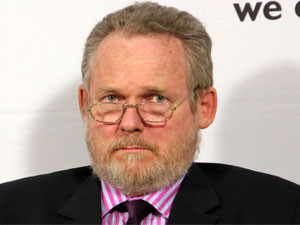
The Department of Trade and Industry (DTI) has drafted SA's ICT Sector Code and invites members of the public to comment by 29 April.
Trade and industry minister Rob Davies says the Draft Amended ICT Sector Code has unique features and deviations that intend to address transformation peculiarities that exist in the ICT sector.
"The key feature or highlight is that the Draft Amended ICT Sector Code set a black ownership target of 30% to accelerate the pace of transformation in the sector. The target is higher than the 25% target of the Generic Codes," says Davies.
"Another unique feature of the Draft Amended ICT Sector Code is the high target of 3% of the annual net profit after tax (NPAT) for enterprise development (higher than 1% of the annual net profit after tax target for the Generic Codes). The 3% target will be utilised by measured entities for the development of black-owned ICT companies," he adds.
The target for socio-economic development has been set at 1.5% of the annual NPAT, which is higher than the 1% of the annual NPAT of the Generic Codes.
According to Davies, the aim is to bridge the digital divide by requiring that enterprises undertake certain obligations in terms of access to ICT so as to improve the lives of the people. "Such programmes could be in the form of providing ICT in education, health and programmes aimed at enhancing the lives of black communities."
The responsibility of the DTI is to ensure sector charters submitted for gazetting are sufficiently aligned to the B-BBEE Act and Codes of Good Practice and more importantly, that they advance the objectives of sustainable B-BBEE.
Deon Oberholzer, CEO of VeriCom, a BEE consultancy agency, explains that SA's BEE legislation allows for industry sectors to have their own sector codes that may align more closely with the specific nuances in their industry or to set more progressive transformation targets.
"To date, there have been 10 such sector codes. After the Amended Codes was gazetted in October 2013, the different sector councils were given time to align their sector codes with the significantly more onerous requirements of the Amended Codes. This process dragged on with the successive deadlines being missed."
Oberholzer says some companies may see their BEE score reduced due to the more stringent requirements of the sector codes.
However, he points out the ICT sector does not yet have to comply with the codes as a 60-day window is still needed for public comment. "We will probably see the codes getting finalised in the next six months."
Adrian Schofield, a B-BBEE ICT sector councillor, says the sector has waited too long for these codes to be implemented.
"The complexity of the ICT sector and its embedded nature as far as the entire socio-economic framework of the country is concerned are the reasons for having these unique codes. It is vital for achieving the goals of transformation that progress in the sector is speeded up, so that South Africa's competitiveness is improved and that all its citizens can benefit."
Comments on the ICT Sector Codes can be sent to ICTsectorcode@thedti.gov.za.
Share